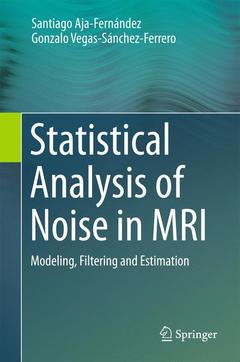Description
Statistical Analysis of Noise in MRI, Softcover reprint of the original 1st ed. 2016
Modeling, Filtering and Estimation
Authors: Aja-Fernández Santiago, Vegas-Sánchez-Ferrero Gonzalo
Language: English
Subjects for Statistical Analysis of Noise in MRI:
Keywords
MRI; Noise Modeling; Signal Processing; Parallel Imaging; Estimation
158.24 €
In Print (Delivery period: 15 days).
Add to cartPublication date: 07-2016
Support: Print on demand
168.79 €
In Print (Delivery period: 15 days).
Add to cartPublication date: 05-2018
Support: Print on demand
Description
/li>Contents
/li>Comment
/li>
The Problem of Noise in MRI.- Part I: Noise Models and the Noise Analysis Problem.- Acquisition and Reconstruction of Magnetic Resonance Imaging.- Statistical Noise Models for MRI.- Noise Analysis in MRI: Overview.- Noise Filtering in MRI.- Part II: Noise Analysis in Non-Accelerated Acquisitions.- Noise Estimation in the Complex Domain.- Noise Estimation in Single-Coil MR Data.- Noise Estimation in Multiple-Coil MR Data.- Parametric Noise Analysis from Correlated Multiple-Coil MR Data.- Part III: Noise Estimators in pMRI.- Parametric Noise Analysis in Parallel MRI.- Blind Estimation of Non-Stationary Noise in MRI.- Appendix A: Probability Distributions and Combination of Random Variables.- Appendix B: Variance Stabilizing Transformation.- Appendix C: Data Sets Used in the Experiments.




